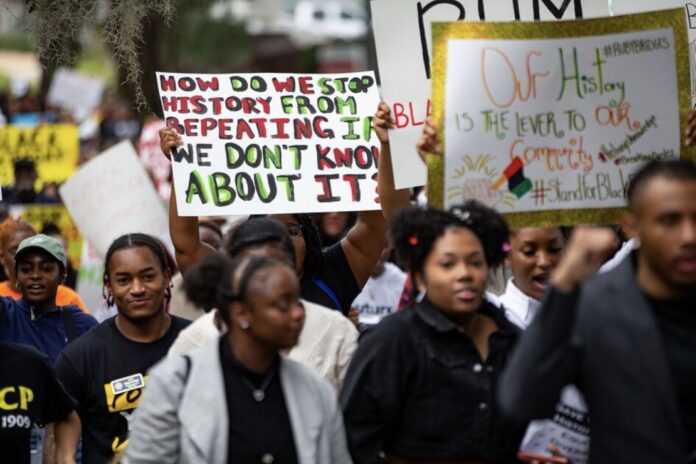Why They Don’t Want People to Learn Black History
Why is it important to preserve Black history, and how can it shape future generations? If the White House has its way, they will end Black History even though it is American History. Black History has not been taught like it should be, and where and when it has been taught much of it has been told as half-truths, omissions, lies, distortions, or erasures. Future generations will be able to study the past and connect it to the present and the future. gain a greater understanding of the important of understanding the legacy of slavery, its child white supremacy, and how it shaped national policies and the fight against Jim Crow Law, slavery by another name, lynching, and white supremacist terror.
Expanding Black History No Matter Who Likes It
How can digital technology be used to preserve oral histories and cultural traditions within the Black community? Archives of all types allow for wide accessibility to history across all modalities including recorded interviews, research papers, oral histories, music and culture through online platforms, enabling easier reviewing, preservation, and sharing with online friends. The community can benefit and get educated with the same material that is taught at universities. People can learn how to share their historical records with online platforms and develop a family ancestry of how it relates to slavery, the fight against slavery, and the present legacy of slavery. Social media platforms are already exposing the truth about racism in American history. We are going to expand Black History even if the current state and national administrations do not like it.
Dignity in the Face of White Supremacy
In the past, maintaining dignity in the face of white supremacy was done with oral histories and notes in a Bible, but now we can publish those Bible notes and oral histories for the world to understand the horrors of racism and how people fought back. What roles do museums, cultural institutions, classrooms, and public monuments play in safeguarding Black history? There is a growing trend in Black communities to create their own museums. In San Antonio, there will be a ground breaking of the San Antonio African American Community Archives and Museum (SAAACAM) in 2026. In this way, the truth can finally be told about many things including slavery in Texas, slavery of the Alamo defenders, and a list of the slave plantations in San Antonio and many other issues.
Offsetting Lies and Omissions
There are over 100 Black museums across the country and many feel this is one way to offset the lies and omissions that are used in typical classes of American history, Political Science, Sociology, and even other disciplines like Math. University professors can take students on tours that offer a true rendition of Black life across disciplines and develop research ideas for those seeking various degrees. Real Black heroes can be researched rather than the ones that white society wants everyone to accept. There is no statue of W.E.B Dubois or John Brown in San Antonio and these symbols would speak volumes of a hidden history.
What impact can Black history have on individuals who are not of African descent? The teaching of Black history should not be a source of contention across the nation as extremist groups push school boards and state political bodies to eliminate or whitewash Black history. In teaching Black history, the ideas of justice and resistance surface against all forms of ethnic hatreds and thus contributes to the overall ideas about human rights for all people. This is why they oppose it, for it sends a clear message that racism and intolerance has to be fought against.








